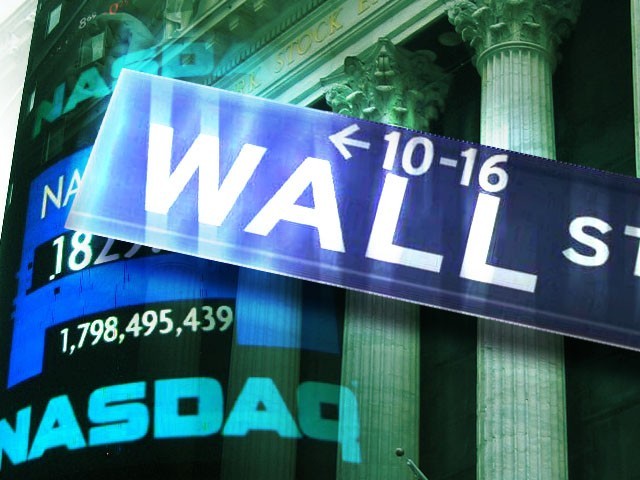Housing starts fell more than 6 percent in September to an annual rate of 817,000 units, the Commerce Department reported. That figure is lower than the 880,000 units forecast by Wall Street economists surveyed by Thomson/IFR. Building permits also sank.
The report was yet another piece of evidence that the nation is struggling with a weak economy that, if the financial crisis is not solved, could dive into a sustained downturn. President Bush on Friday said in a speech that the credit market - where many companies find funding for their operations - will take a while to thaw, but that Americans should be confident that it will.
Investors appeared to look past a reading on October consumer sentiment, perhaps because it was expected after a stream of other negative data on consumers. A weaker-than-expected report on retail sales Wednesday made clear that consumers nervous about the economy and the faltering stock market are less willing to pull out their wallets. The Reuters/University of Michigan's index of consumer sentiment fell to 57.5 from 70.3 in September.
It's been an erratic week on Wall Street, with the Dow soaring 936 points on Monday, slipping moderately Tuesday, sinking 733 points Wednesday, and then rallying 401 Thursday. The volatility is not providing investors with much relief, but it is a welcome change from last week's relentless plunge, during which the Dow logged its worst week ever and Wall Street lost about $2.4 trillion in shareholder wealth.
David Dietze, president at Point View Financial Services Inc. in Summit, N.J., contends that much of the market's whipsaw moves in the past month have come as hedge funds and mutual funds were forced to sell positions because some shareholders were cashing out.
"These hedge funds are getting hit by redemptions, their credit lines are being pulled and they are having to sell furiously," he said. "Selling begets selling, which begets selling, which begets more selling."
While Dietze sees risks for the economy, he questions whether the rapidity of the stock market's retreat signals the pullback was overdone.
"We have a credit crunch which is morphing into a general recession and certainly a lot of the economic data points down but still, to come in this week and see the markets down 20 percent - basically a bear market within a bear market just this month - you wonder if there isn't just this massive overreaction," he said.
In midday trading, the Dow Jones industrial average fell 2.71, or 0.03 percent, to 8,976.55, after being down 261 points and rising 70.
Broader stock indicators advanced. The Standard & Poor's 500 index rose 4.13, or 0.44 percent, to 950.56, while the Nasdaq composite index rose 11.09, or 0.65 percent, to 1,728.80.
The credit markets have been improving after moves by governments around the world, particularly plans to buy stakes in private banks to boost their lending. But there's still high demand for Treasury bills, regarded as the safest assets around, an indication that there is still much fear in the markets.
The three-month Treasury bill Friday yielded 0.74 percent, up from 0.47 percent on Thursday. That indicates a let-up in demand, though the yield has not surpassed 1 percent in more than a week.
The dollar was mixed against other major currencies, while gold prices fell.
Light, sweet crude rose $1.61 to $71.46 a barrel on the New York Mercantile Exchange. On Thursday, it sank to a 14-month low on worries about a deep global recession obliterating fuel demand.
In earnings news, Schlumberger Ltd. reported a rise in third-quarter profit that was in line with analyst expectations. The oil field services company said tougher times might lie ahead, though. The stock fell $3.21, or 6 percent, to $49.99.
Manufacturing conglomerate Honeywell International Inc.'s report was similarly cautious: a better-than-expected quarterly profit increase, but a tightened outlook for the year. Honeywell fell $1.93, or 6.2 percent, to $29.
Late Thursday, Google Inc. posted a 26 percent increase in third-quarter profit. Google rose $29.85, or 8.5 percent, to $382.87; early Thursday, the Internet company's stock had fallen to a three-year low.
Advancing issues outnumbered decliners by about 8 to 7 on the New York Stock Exchange, where volume came to 801.3 million shares.
The Russell 2000 index of smaller companies fell 2.76, or 0.51 percent, to 533.81.
Markets overseas were mostly higher Friday. In Asia, Hong Kong's Hang Seng index dropped 4.44 percent to its lowest level in almost three years, but Japan's Nikkei average rose 2.78 percent after a 11.4 percent loss Thursday. In Europe, Britain's FTSE index rose 4.43 percent, Germany's DAX index rose 3.43 percent, and France's CAC-40 rose 4.68 percent.
---
On the Net:
New York Stock Exchange: http://www.nyse.com
Nasdaq Stock Market: http://www.nasdaq.com

http://accesswdun.com/article/2008/10/214320
